Through the lens of music, friendship, and romance, Venus: Improbable Dream from BorealisGames is a game that intends to highlight the multi-fold need for empathy and compassion for those struggling with disabilities and mental health disorders. Akane Kakeru is a seventeen year old with a facial disfigurement that exacerbates his anxiety and feelings of social isolation. After being strongly encouraged to try out the music club, he meets Fujiwara Haruka, a shy flutist with a disability of her own. As they connect through music, Kakeru starts to remember what it’s like to feel confident, socially connect, and maybe even some new emotions.
A review for Venus was requested through the VNGame Den Review Request form. The game is currently on Kickstarter to fund the full project.
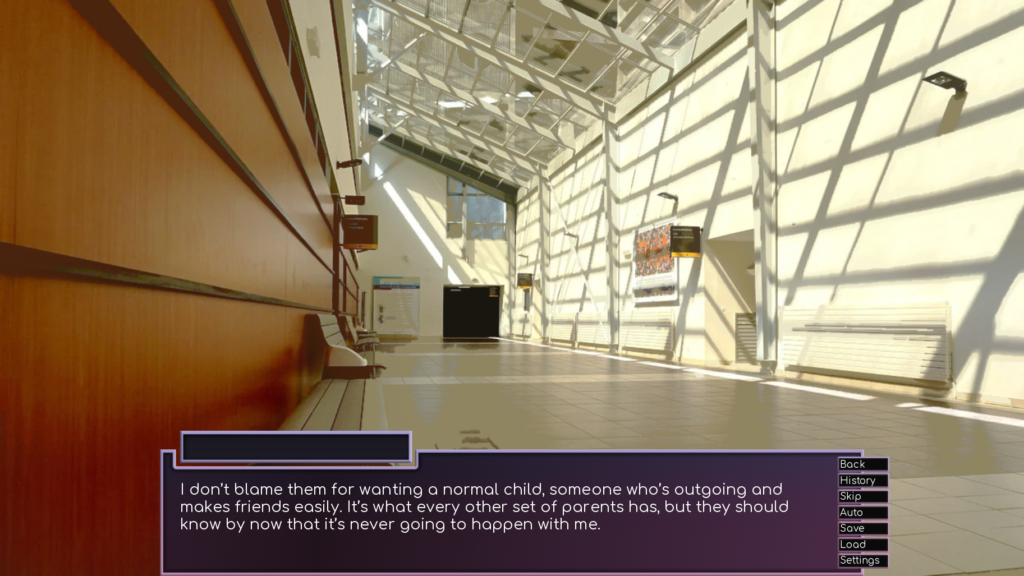
A Driving Inner Monologue
While it can feel a little stilted from time to time, the overall content of Kakeru’s inner monologue as we run through the game is an excellent rendition of the inner workings of anxiety, depression, and loneliness. His voice is strong and it bleeds into all his interactions with his environment, his teachers, his classmates, and the circumstances he finds himself in. There’s very little dialogue, which feels strange at first. As you settle into the pattern of Kakeru’s thoughts, though, you start to see it as a dialogue with himself, and you can ride the tension with him as it swells and breaks from day to day.
While the rehashing of emotions can get a little tedious through his first couple of days in the music club (despite how accurate these feelings are), it’s not too terribly long before Kakeru starts moving on into exploring new emotions as he gets to know Haruka. Overall, the story does move at a fairly slow pace, but not much more than one would expect from a typical slice of life or a slow burn. The central conflict’s a little too sparse to drive the story forward on its own, but there’s enough visible inter- and intrapersonal progress that you’re still eager to see what happens next from day to day and scene to scene.
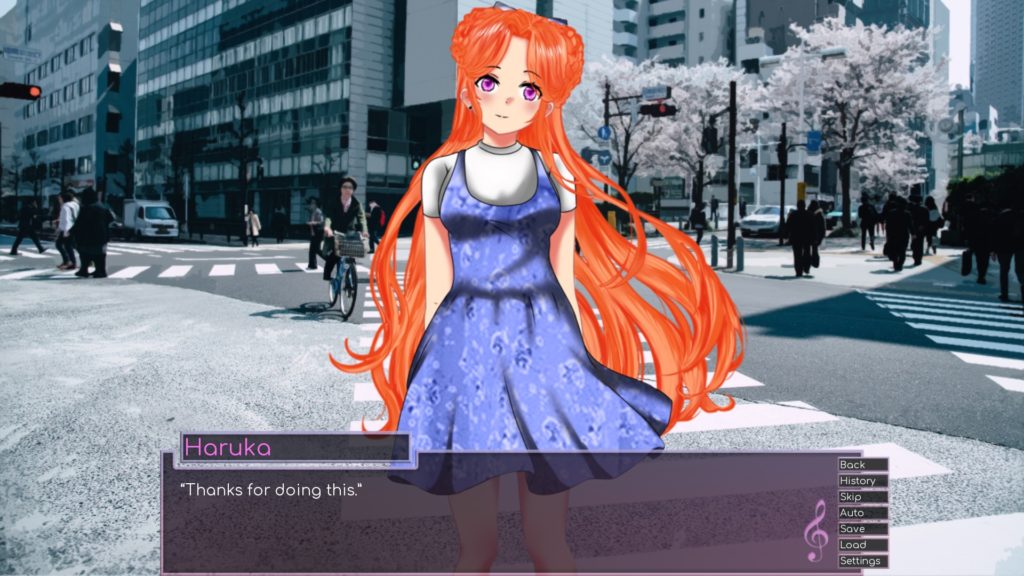
Quite the Pair of Romantic Leads
The one person Kakeru interacts with by choice is Haruka, and their expanding relationship quickly becomes the backbone of the story progression. Their dynamic is very natural; they’re simply two high school rejects learning how to find solace in one another. They’re beautifully awkward and their blossoming friendship is heartwarming and fun to watch.
Kakeru’s response to his own change is just as intriguing as the relationship itself. The game provides a nuanced take on experiencing new emotions, understanding the gap between romantic and platonic feelings, and navigating the pressurized social bubble of high school. It also delves into the feelings of guilt Kakeru is experiencing. Is he taking advantage of her? Is he only comfortable around her because she can’t see his disfigurement? Despite this, it’s clear they’re bringing out something new in each other, and it sets the stage for a soft, gentle romance that builds naturally.
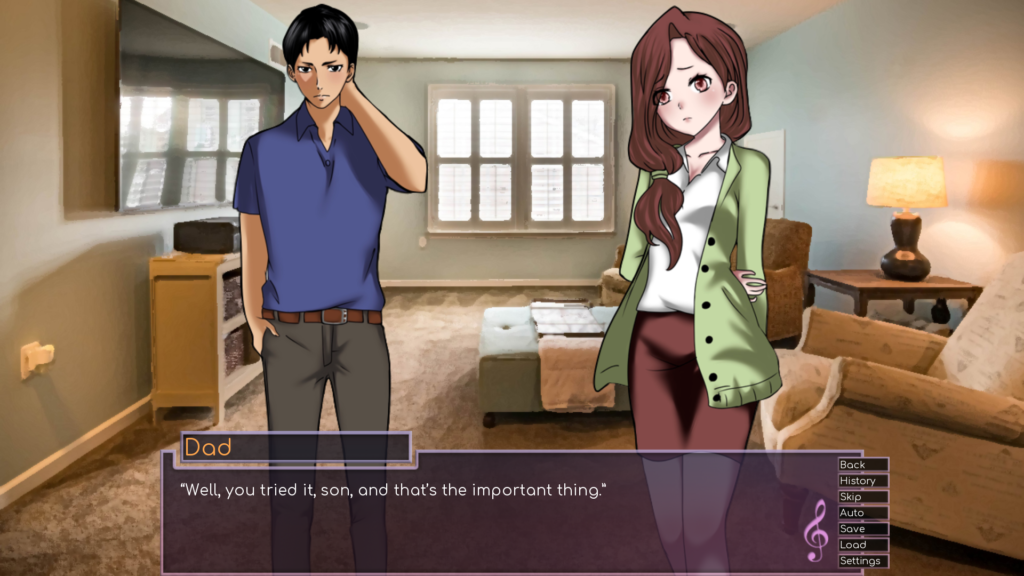
Still Hasn’t Quite Got It’s Footing
When a game is in a demo state, one can usually expect to see unfinished assets. This game still has a lot of work to do in the art department, so it’s hard to know what the final product is going to look like at this point. The backgrounds are currently just photographs, with some of them being edited with filters. The implication is that this is a relatively accurate representation of how they will appear in the final state. While I’m remiss to imply that there’s a right or wrong asset generation methodology, the illustrated sprites and CGs combined with photographic backgrounds are consistently jarring.
The sprites are unique, and those that are implemented are fairly well-designed as characters. They’re very charming, emotive, and fit the mood, but they could be more refined in their rendering. It’s a game that hasn’t quite found its aesthetic yet.
It’s also a little unclear how much interactivity the developer actually intends. On the store page, the game is described as “choice heavy.” Even in a demo, I would expect to see the implementation of that, and it simply wasn’t. You’re only presented one choice. There’s nothing inherently bad about no or few choices, but it does strike as the developer not having a solid grasp on what the player expectation of “choice heavy” or “choice based” really is.
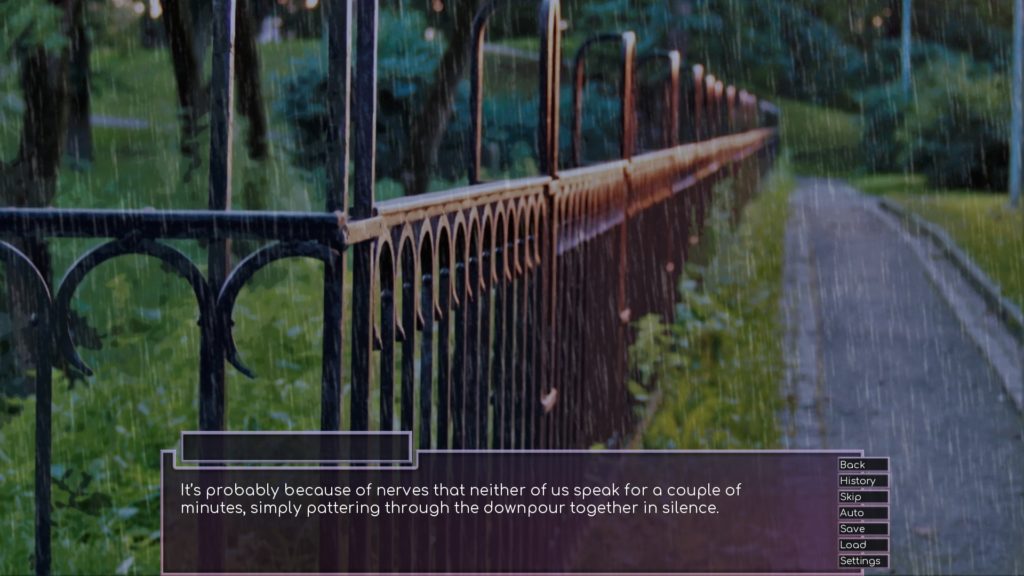
A Solid Visual POV
Despite there still being some rough spots, even as a demo, the game feels as though it was made by someone with a good sense of movement through space and a more comprehensive approach to setting up the environment. A lot of attention has been paid to the soundscape and sound design, for example, something one almost expects in a game so heavily about music. While there aren’t any “camera” movements, the motion through different backgrounds and the focal points of those backgrounds expresses a natural fluidity and distinct first-person feel that fits well with the very introspective narration. So while the game would benefit from having illustrated backgrounds (as opposed to photographic ones), at least the ones that are being used have the right feel to them.
Venus: Improbable Dream is still a game in need of work, but it has excellent bones. With some time, attention, and funding, it has the promise of delivering a lovely, organic romance and a serious discussion of disability and mental health.
The demo is available for download on itch.io, and the Kickstarter runs until October 7th.

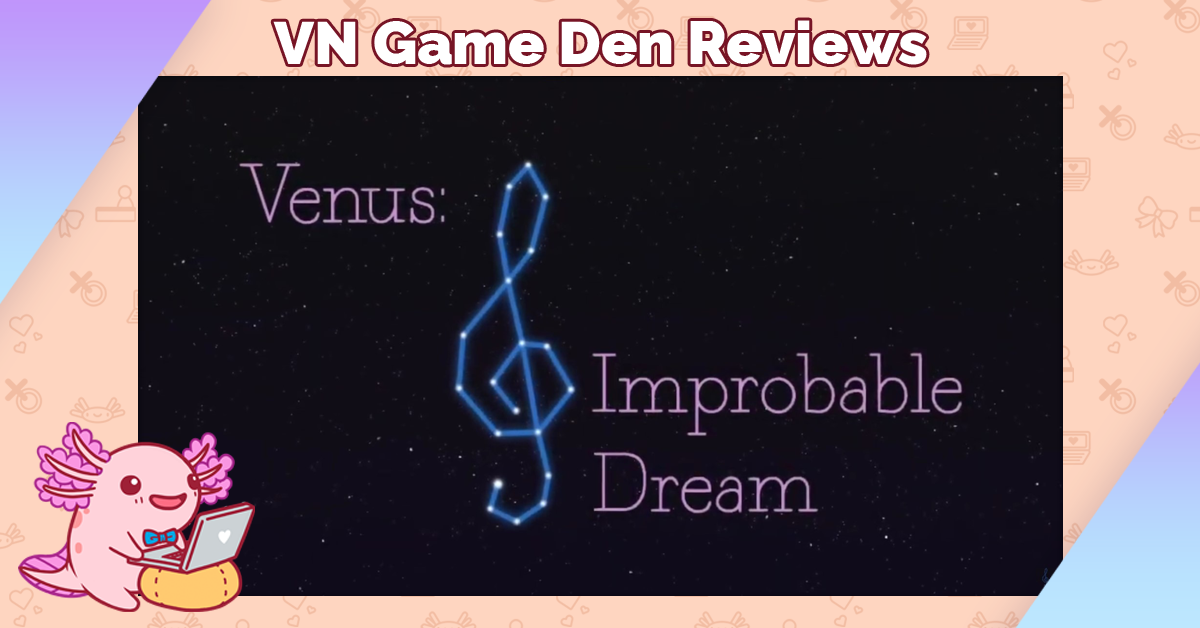
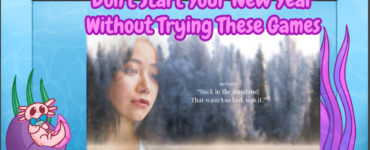
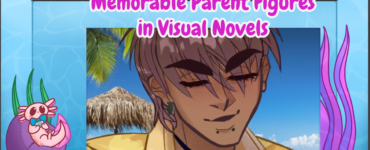
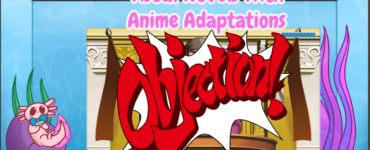
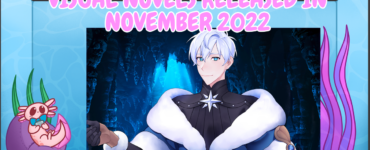


Totally agree with this review. Overall, I was thoroughly underwhelmed with this demo.
[…] You can read our review of the demo here. […]